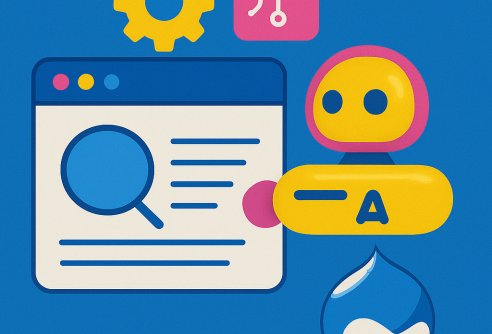What are the risks of staying on Drupal 7?
All software has undiscovered flaws that can be attack vectors. Luckily, supported Drupal versions have a whole community to work on them. After 01 November 2023, Drupal 7 is unsupported, which means that the risk to your site grows massively, from potential bugs and vulnerabilities that threaten your data.
Remaining on Drupal 7 beyond November 2023 creates four main risks:
- Data breaches Large-scale data exfiltration can occur via access to websites that hold this data or link to systems that do, like CRMs.
- Unauthorised access into organisation-wide systems and infrastructure Website vulnerability can offer a route into an organisation network via servers or other connected systems. Imagine a chain of privilege being exploited through successive systems, with the public-facing website as an obvious front door that's been left open.
- Ransom attacks Access to website data means an attacker can then attempt to blackmail an organisation. Other ways in which organisations are extorted include the threat of continued disruption, denial of service, public embarrassment or data sale.
- Website vandalism Attackers change your content for multiple purposes, sometimes via automated tools simply for spam and sometimes for more targeted motives.
Impact of these risks
- Loss of your site, either entirely or due to downtime whilst issues are fixed
- Loss of your business critical functionality and any systems integrated into the website
- Reputational damage that destroys trust in your brand and market confidence. TalkTalk’s market value halved after one such attack.
- Data breaches of payment, user and customer data held on the site, or associated systems and subsequent fines. Such as British Airways’ £20m fine for losing customer information.
NDP Studio's Drupal consultants can help review and mitigate your site's risk profile along side your current agency or in-house team. Get in touch for more information on the services we offer.






